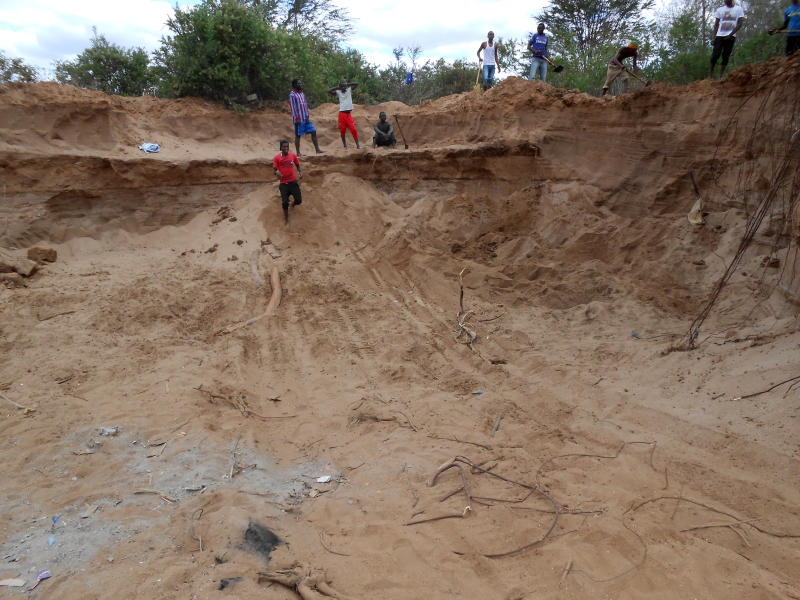×
The Standard e-Paper
Smart Minds Choose Us

Sand harvesters at the degraded Voi River in Taita-Taveta County, September 2, 2016. [Renson Mnyamwezi, Standard]
Residents have a reason to celebrate after Voi River burst its banks following heavy rains on Monday.